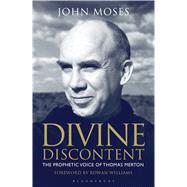Thomas Merton's best-selling spiritual autobiography, The Seven Storey Mountain, was one of the most influential books of the twentieth century. The original (1948) hardback edition sold 600,000 copies and by 1984 paperback sales had exceeded 3m. It has been translated into 15 languages and remains in print today. The 2015 centenary of Merton's birth provides an opportunity to reconsider both his international reputation and his startling relevance in today's world.
Merton was a Trappist monk, writer, contemplative, social critic, pacifist, jazz lover and (in the context of world faiths) ecumenist whose sudden, premature death in unexplained circumstances prompted a further surge of interest in the man and his work. His extensive writings, many only recently available, provide the basis for a fresh examination of his story, permitting Merton to speak for himself whenever possible, but enabling also an analysis of his abiding fascination and the discontents - human and divine - that dominated so much of his life. The author inspires us to look again at our preconceived ideas about the natural world, the prevailing culture, abuses of power, questions of war and peace, contemplation and action, institutions and the freedom of the individual - and the search for God.
NB The International Thomas Merton Society has 40 Chapters in the US alone, overseas Chapters in Argentina, Australia (2), France, Japan, New Zealand and Russia, and affiliated organisations in 11 further countries (Belgium & the Netherlands, Brazil, Canada, England, Germany, Ireland, Italy, Korea, Poland, Spain and Sweden).








